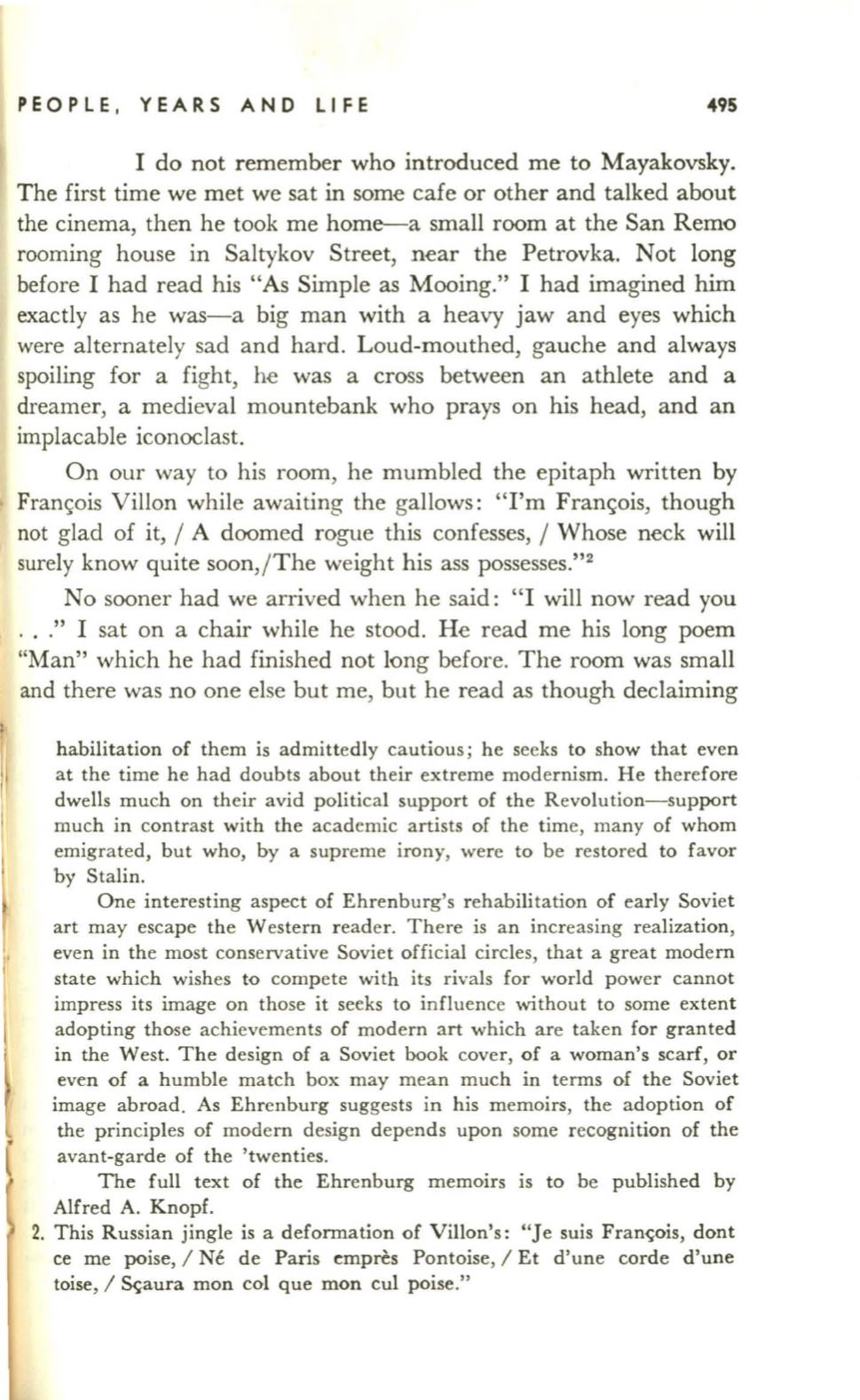
PEOPLE, YEARS AND LIFE
495
I do not remember who introduced me to Mayakovsky.
The first time we met we sat in some cafe or other and talked about
the cinema, then he took me home-a small room at the San Remo
rooming house in Saltykov Street, near the Petrovka. Not long
before I had read his "As Simple as Mooing." I had imagined him
exactly as he was-a big man with a heavy jaw and eyes which
were alternately sad and hard. Loud-mouthed, gauche and always
spoiling for a fight, he was a cross between an athlete and a
dreamer, a medieval mountebank who prays on his head, and an
implacable iconoclast.
On our way to his room, he mumbled the epitaph written by
Franc;ois Villon while awaiting the gallows: "I'm Franc;ois, though
not glad of it, / A doomed rogue this confesses, / Whose neck will
surely know quite soon,/The weight his ass possesses."2
No sooner had we arrived when he said: " I will now read you
..." I sat on a chair while he stood. He read me his long poem
"Man" which he had finished not long before. The room was small
and there was no one else but me, but he read as though declaiming
habilitation of them is admittedly cautious; he seeks to show that even
at the time he had doubts about their extreme modernism. He therefore
dwells much on their avid political support of the Revolution-support
much in contrast with the academic artists of the time, many of whom
emigrated, but who, by a supreme irony, were to be restored to favor
by Stalin.
One interesting aspect of Ehrenburg's rehabilitation of early Soviet
art may escape the Western reader. There is an increasing realization,
even in the most conservative Soviet official circles, that a great modern
state which wishes to compete with its rivals for world power cannot
impress its image on those it seeks to influence without to some extent
adopting those achievements of modern art which are taken for granted
in the West. The design of a Soviet book cover, of a woman's scarf, or
even of a humble match box may mean much in terms of the Soviet
image abroad. As Ehrenburg suggests in his memoirs, the adoption of
the principles of modern design depends upon some recognition of the
avant-garde of the 'twenties.
The full text of the Ehrenburg memoirs is to be published by
Alfred A. Knopf.
2. This Russian jingle is a deformation of Villon's:
"J
e suis
Fran~ois,
dont
ce me poise, /
Ne
de Paris empres Pontoise, / Et d'une corde d'une
toise, /
~aura
mon col que mon cui poise."


